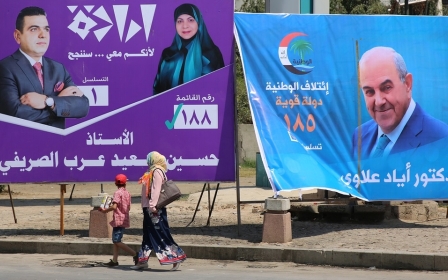Islamic State mouthpieces targeted in international operation

A joint EU-US-Canadian operation has disabled several Islamic State (IS) group mouthpieces in a sweeping, multinational attempt to severely disrupt the terrorist organisation’s propaganda flow, Europol said on Friday.
Beginning on Wednesday, the two-day coordinated action, which involved authorities from eight countries, has seriously compromised the capability of the group to broadcast and publicise "terrorist" material, the European police agency said in a statement.
“With this ground-breaking operation we have punched a big hole in the capability of IS to spread propaganda online and radicalise young people in Europe,” Rob Wainwright, the executive director of Europol, said.
The group's primary mouthpiece, Amaq news agency, was targeted, alongside other outlets such as Al-Bayan radio, Halumu and Nashir news.
Initially posing as a legitimate news organisation, Amaq was officially endorsed by IS in July 2017 and has been used by the group to claim a raft of terrorist attacks in the Middle East and beyond, including in Paris, Brussels, Berlin and Barcelona.
In March, Amaq was used by IS to claim an attack in a supermarket in Trebes, France, in which four people were killed.
The operation was led by the Belgian federal prosecutor, with assistance from the UK’s Counter-Terrorism Internet Referral Unit in identifying top-level domain registrars abused by the group.
Police forces seized servers in the United States, Canada and the Netherlands, while digital material in France, Romania and Bulgaria was also taken.
“This shows that by working together we can stamp out the poisonous propaganda [IS] has used to fuel many of the recent terror attacks in Europe,” Julian King, the EU security commissioner, said.
This shows that by working together we can stamp out the poisonous propaganda
- Julian King, EU security commissioner
“For too long the internet has been open to terrorists and those who seek to do us harm: those days are coming to an end thanks to this type of coordinated global work.”
Europol’s case began in 2015 when the agency warned EU states about Amaq’s rise and the technical resilience of the group's online infrastructure.
In 2016 Amaq’s mobile application and web infrastructure was taken down, only for more complex and secure infrastructure to be built in their place.
In a second strike in 2017 Spanish police seized servers that allowed for the identification of radicalised people in more than 100 countries.
New MEE newsletter: Jerusalem Dispatch
Sign up to get the latest insights and analysis on Israel-Palestine, alongside Turkey Unpacked and other MEE newsletters
Middle East Eye delivers independent and unrivalled coverage and analysis of the Middle East, North Africa and beyond. To learn more about republishing this content and the associated fees, please fill out this form. More about MEE can be found here.




